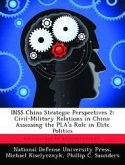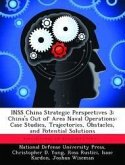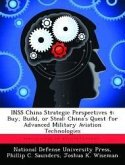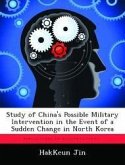China's ambitions regarding Taiwan have tremendous implications on US foreign policy. At a time when the US is heavily committed to fighting terrorism in both Iraq and Afghanistan, finding the resources to defend Taiwan against Chinese military aggression would be, in the current context, a very difficult task. Yet, stated US policy is to defend Taiwan at all costs. As such, knowing whether China will commit to a military course of action to reclaim its territorial claim is highly important to military planners and US policymakers. This paper examines the conditions that led the Japanese during the 1930s, the Argentines in 1982, and the Serbs in the 1990s to take military aggression to gain or reclaim neighboring territories. It highlights the common threads between the three and attempts to draw parallels with modern-day China in an effort to determine whether China will follow suit. It specifically analyzes the historical, cultural, political, and economic contexts within which each of these three countries operated, and then compares these areas to those of present-day China. This paper ultimately proposes that China may very well attempt to reclaim Taiwan using military force in the near future. The three case studies, when viewed through a neo-classical realist lens, support the conclusion that China is both poised and stands to gain much by using its expanding military might to achieve its long sought after ends. Due to page constraints, and given the gravity of its conclusions, this paper is in reality a good starting point for further and intensive research into this area made necessary by the implications of a Chinese military conquest of Taiwan.








